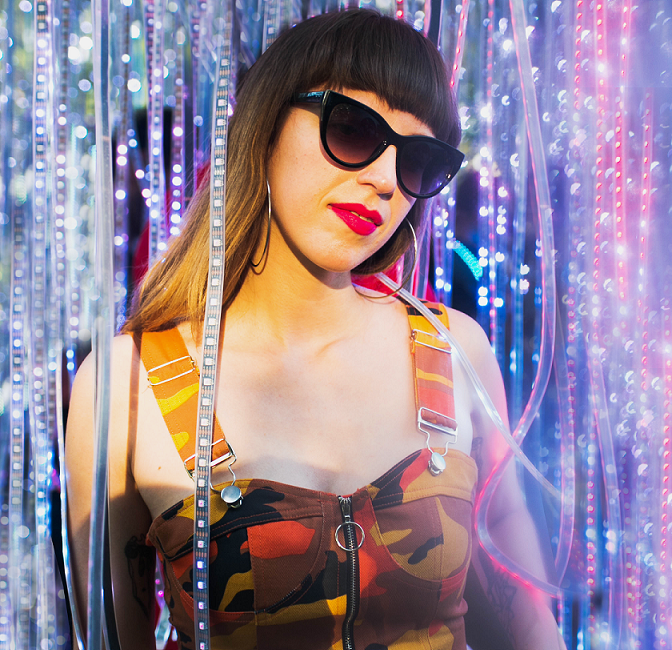
By Andre LaFontant
The Ecuadorian-Lithuanian DJ and producer, Riobamba (Sara Skolnick), fearlessly entrenches herself at the forefront of the rapidly expanding Latinx music scene. Having devoted eight years to spinning records that stay true to a once marginalized sound, Riobamba’s persistent jockeying knocks down mainstream doors with booming reggaeton beats.
Her success, however, is not limited to the New York City club scene. Four years into her DJ career, Riobamba took her passion for Latinx music to Bogata, Columbia, where she spent nine months as a Fullbright Scholar. “That was a big turning point in terms of taking seriously the academic and scholarly side of DJing,” she says. “I really started looking at the way music, community, and politics intersect by researching how the civil conflict was being expressed through physical communities in the capital. I was looking at internal migration from other regions…and the way that was manifesting in the musical traditions that were being remixed and reshuffled.”
An expression of musical tradition Riobamba found in Bogata was la Familia Ayara. Through this organization that promotes non-violence through hip-hop, Riobamba taught music education, with classes such as music production and performance. The commitment to community outreach through her craft extended back to Brooklyn, New York, where she taught at a juvenile detention center for two years. This fall, she continues her passion for the intersection of music technology and education in New York City with teaching stints at the Loisaida Center, Abrons Arts Center, and the Sonic Arts for All, respectively.
Riobamba’s record label Apocalipsis, as well as her monthly Red Bull Radio show, Bien Buena, maintain the consistent rhythm of accountability towards the Latinx community. While providing context around the interconnectivity of genres that are heard today, these platforms focus upon localized communities driving forward Latinx music culture.
“Apocalipsis is intentionally not limited by borders…it’s building a community between different places [from artists in Ecuador like amaF alaM to Kelman Duran based in L.A.]…there’s so much of a broader spectrum of identities, languages, and communities and there is so much richness in the Latinx community that I don’t think it’s translated, not only in presentation, but also in terms of opportunity and resources. It’s really important to have those personal understandings of people’s perspectives and missions so that I can do justice in translating that and amplifying that through the label. My goal is to be inclusive of other people while recognizing my privilege to be able to speak truth to power,” she says.


